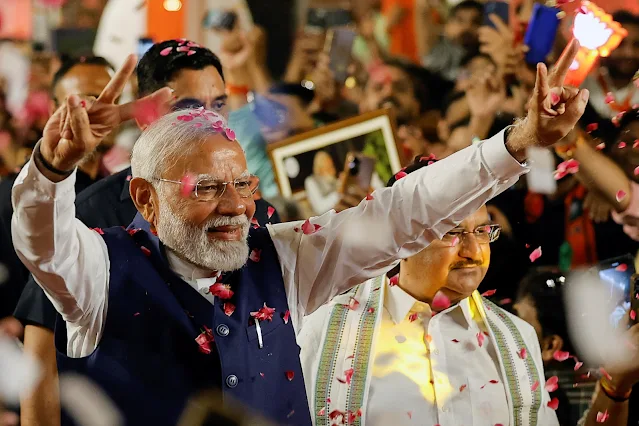As 2024 ends, we reflect on a yea of significant political events, elections, and conflicts that will influence the future. From dramatic political changes to escalating tensions, these events have left a mark on global history.
A Year of Elections
In 2024, over 60 countries held elections, with around 4 billion eligible voters—half of the world’s population—casting their votes. Key elections in Mexico, the United Kingdom, and the United States stood out.
- Mexico elected a new president, while the United Kingdom saw a historic shift. Keir Starmer led the Labour Party to a strong victory, ending 14 years of Conservative rule.
- In the United States, Donald Trump won a second term, making a surprising comeback after surviving two assassination attempts.
- India’s elections saw Narendra Modi’s BJP win again, although not with an outright majority. Modi’s coalition government marked a change in Indian politics.
Bangladesh: Controversial Election and Crisis
In Bangladesh, Prime Minister Sheikh Hasina's party, the Awami League, secured a fourth consecutive term in a disputed election marred by protests and claims of fraud. The unrest led to the opposition calling for reforms. In July, violent protests forced Hasina to resign in August, ending her long rule.
Russia: Putin’s Fifth Term
Russian President Vladimir Putin won a landslide victory in March, securing a fifth term. His political dominance remains strong, even as tensions grow within Russia and from the West due to his policies, especially regarding Ukraine.
Moscow Gun Attack
On March 22, a deadly gun attack in Moscow killed 145 people and injured 500 more. The attack, claimed by an ISIS affiliate, shocked the nation and raised security concerns in Russia.
Tragedy During Hajj
In Saudi Arabia, more than 1,300 people tragically died during the 2024 Hajj pilgrimage due to extreme heat. The incident raised questions about safety measures during religious events in the region.
Modi’s Third Term
India's BJP won the 2024 general elections, but without a clear majority. Narendra Modi formed a coalition government, marking his third term as Prime Minister.
Labour Party's Historic Victory in the UK
In the United Kingdom, Keir Starmer led the Labour Party to a stunning victory in the 2024 general elections. The Labour Party clinched 412 seats, returning the party to power after 14 years of Conservative rule.
Iran’s Reformist Victory
In Iran, reformist Masoud Pezeshkian won the 2024 presidential election, signaling a shift in the country’s politics. Pezeshkian promised changes to laws, such as relaxing the mandatory headscarf law.
Trump Returns to the White House
In the United States, Donald Trump made a dramatic return to the White House. Despite surviving assassination attempts, he defeated his rivals and secured a second term. His victory reshaped U.S. politics and introduced new figures, such as Usha Vance, the first Indian-American Second Lady.
South Korea’s Political Crisis
In South Korea, President Yoon Suk Yeol’s attempt to impose martial law led to protests and his impeachment in December. The political crisis raised concerns about the stability of the nation’s democracy.
Israel’s War on Gaza
The conflict between Israel and Hamas in Gaza escalated in 2024, with the death toll surpassing 45,000 by the end of the year. Tensions also rose with Iran and Syria as Israel continued its military actions.
Iran’s Retaliation
In September 2024, Iran launched missile strikes on Israel in retaliation for Israel’s actions. Despite the attack, Israel’s defense systems minimized damage. Tensions between the two countries remained high throughout the year.
Syria: Assad’s Regime Falls
In December, President Bashar al-Assad’s regime in Syria was overthrown by Turkish-backed forces and Syrian rebels, signaling a major shift in the Middle East. The fall of Assad marked a key turning point in the region’s geopolitics.
Azerbaijan Plane Crash
A tragic plane crash in Kazakhstan killed 38 people. Reports indicated that the crash was caused by an accidental missile strike from Russian forces, adding to the year’s geopolitical tensions.













